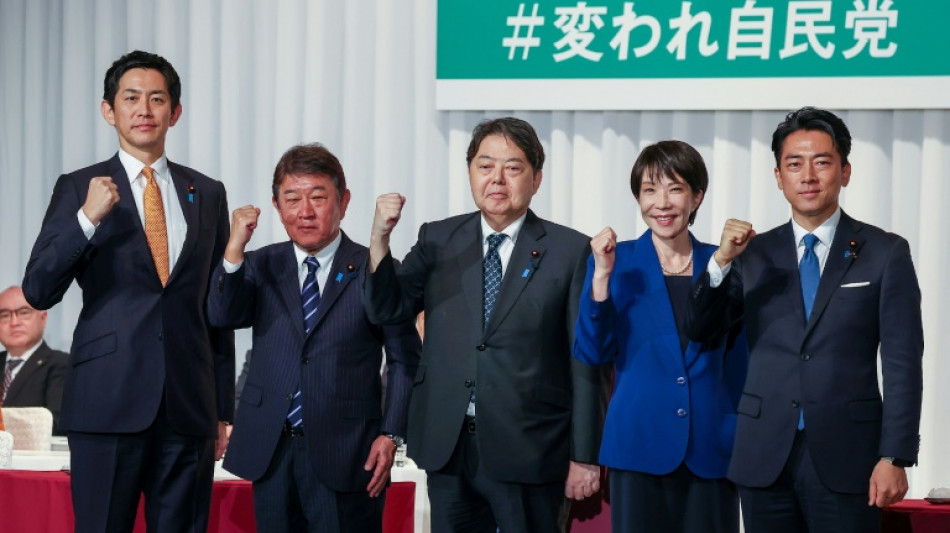

Japan PM candidate vows 'Nordic' gender balance
The only woman in the leadership race for Japan's ruling party vowed Monday to improve the gender balance in her cabinet to "Nordic" levels and to ensure "peaceful" coexistence with foreigners.
Sanae Takaichi would be Japan's first woman prime minister if she wins the October 4 contest to head the Liberal Democratic Party (LDP) and then secures enough support in parliament.
Setting out her stall after filing her candidacy along with four others, Takaichi -- seen otherwise as an arch-conservative -- said people would be "very surprised" by her appointments.
"Our cabinet and (LDP) executive committee will include women to the extent that they will be comparable to those of Nordic countries," the 64-year-old said.
In Japanese politics and boardrooms, women are rare. Japan ranked 118 out of 148 in the World Economic Forum's 2025 Gender Gap Report.
In the Nordic region, Iceland, Finland and Norway occupied the top three places.
In the 20-strong current cabinet of Prime Minister Shigeru Ishiba, who announced his resignation on September 7, there are just two women.
Only around 15 percent of lower house lawmakers are women.
Takaichi, who along with Shinjiro Koizumi is a favourite to win the LDP race, also said that growing numbers of foreigners were "rattling nerves".
While tourists were welcome and ageing Japan needed foreign workers, immigration "in a hurry would create a hostile atmosphere within Japanese society", she said.
"I'm going to review the policy so that we will be able to live peacefully together with foreigners," she said.
Immigration levels in Japan remain low compared to other rich economies.
But in July, the anti-immigration Sanseito party did well in upper house elections, growing its seat tally to 15 from two.
Koizumi, the telegenic son of a former premier, on Monday also touched on immigration.
"Currently, in some areas, the reality is that illegal employment of foreign nationals, friction with local residents, and deteriorating public safety are causing anxiety among local residents," he said.
He said though that his "top priority is to address the urgent concerns of the public struggling with high prices and difficult living conditions," promising to submit an "economic package" to parliament.
Koizumi, 44, also blamed recent election results, in which the LDP's coalition lost its majority in both houses, on the LDP failing to "listen to people's voices".
Assuming he or she wins enough support in parliament, the winner of the LDP leadership contest would be Japan's fifth prime minister in as many years.
The LDP has governed Japan for all but four years since it was launched in 1955.
Another candidate Toshimitsu Motegi, 69, a former minister and trade negotiator, said Monday that the average age of his cabinet would be 10 years younger than now, with 30 percent of them women.
Also running are Yoshimasa Hayashi, 64, the spokesman for Ishiba's cabinet who has held different ministerial posts, and former economic security minister Takayuki Kobayashi, 50.
The LDP and other established parties are "struggling to gain support among young voters," said Junichi Takase, professor emeritus at the Nagoya University of Foreign Studies.
"The undercurrent in the political scene is a transition from old parties to new parties, so the LDP needs to revive itself to survive," Takase told AFP.
B.A.Bauwens--JdB



